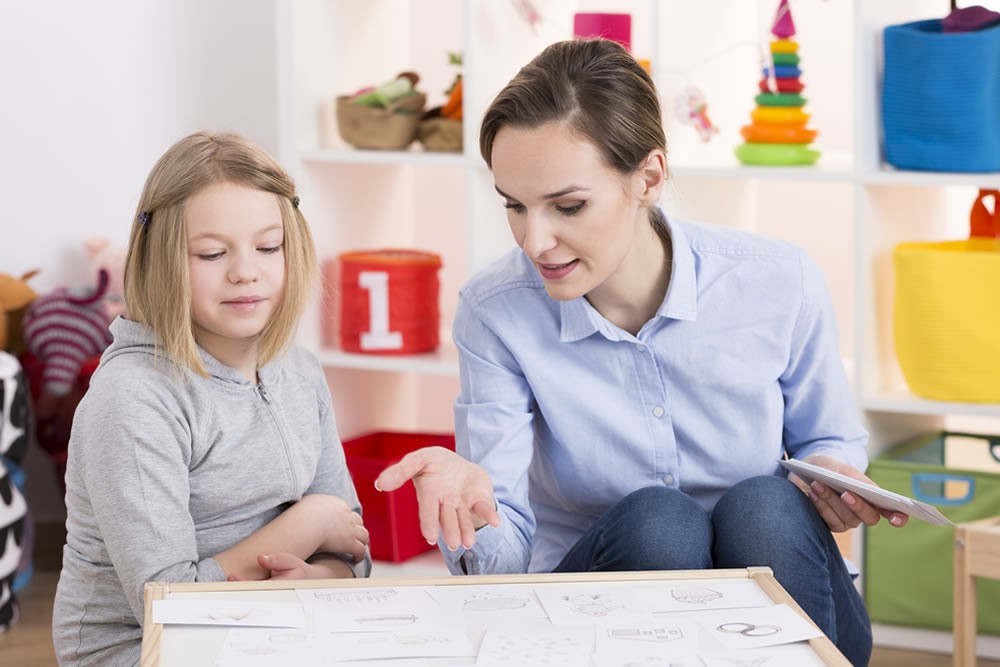Play is at the core of children’s lives. It is how children express themselves, connect with others, and make sense of the world. Play is so important for children’s development that the American Academy of Pediatrics (AAP) describes it as “essential to the social, emotional, cognitive, and physical well-being of children beginning in early childhood.” Through play, children can share their fears, frustrations, wishes, and dreams with others, as they cannot yet directly verbalize their thoughts and feelings.
Play can take many forms. There is constructive play (building with blocks, constructing, assembling), mimetic play (playing ‘house,’ role-playing as ‘mommy’ or ‘daddy’), pretense play (‘make-believe’ play, fantasy), sensory and kinesthetic play (playing with toys featuring buttons, flashing lights, sounds, and textures), active play (sports, exploration), and several others. While there is no single definition, all of these forms of play can contribute to a child’s social, emotional, cognitive, and physical well-being.
Play therapy is a form of psychotherapeutic treatment that utilizes this natural activity in which all children engage to offer support and skills. As author Konstantinos Koukourikos and colleagues state, “Play therapy is defined as the systematic use of a theoretical model that establishes an interpersonal process, in which trained therapists use the therapeutic power of play to help children prevent or resolve psychosocial difficulties and achieve optimal growth.”
Depending on the model of play therapy, the therapy session may vary. For example, some play therapists incorporate parents and caregivers into the session, while others only involve the child. Some are directive, where the therapist introduces activities and topics, while others are non-directive, allowing the child to lead in the play. However, all play therapists utilize different forms of play to help children grow, learn, and develop.
Play therapy has been found to be helpful for children from preschool through school age, and it can be beneficial for a variety of conditions and stressors, including:
- Sudden transitions or changes (e.g., new sibling, relocation, changing schools)
- Loss and separation (e.g., death of a parent or sibling, parental divorce or separation)
- Behavioral problems (e.g., aggressive behavior, temper tantrums)
- Bullying (as the victim or perpetrator)
- Experiencing abuse or trauma (e.g., domestic violence, physical assault, natural disasters)
- Medical anxiety (e.g., anxiety from injury or illness, surgical anxiety, fear of death)
- Developmental disorders (e.g., ADHD, Autism Spectrum Disorder)
- Speech and language disorders (e.g., mutism, expressive language disorder)
- Mood disorders (e.g., depression and anxiety)
As play is such a crucial part of children’s development, play therapy can be utilized to create change for the child in various ways. Below is a non-exhaustive list of some of the benefits play therapy can provide for children:
- Adjusting maladaptive behavior: Play therapy can help children develop adaptive behaviors and strategies by modeling these behaviors in play and giving the child opportunities to practice.
- Fostering empathy and social skills: Through play, children can practice perspective-taking and explore how their behavior impacts others.
- Cultivating frustration tolerance and resilience: Play therapy provides opportunities for children to cope with setbacks and learn adaptive ways to manage stress and frustration.
- Learning to identify and express one’s needs, thoughts, and feelings: Play allows children to voice their inner world, with therapists helping them articulate their feelings and thoughts.
- Developing executive functioning skills: Play often requires problem-solving, concentration, collaboration, and planning, which are core aspects of executive functioning. Therapists utilize techniques and interventions in play therapy to help children improve upon these skills and ability in their play.
- Promoting creativity: Creative outlets in play therapy, such as drawing, painting, crafting, and music, help children express themselves.
- Improving self-esteem: Play activities that result in a sense of mastery and accomplishment can boost self-esteem.
Play therapy can be a powerful tool for treating and preventing psychosocial difficulties in children's lives. Numerous studies have found that participation in play therapy is associated with reductions in maladaptive behaviors, improved social skills, and significant positive changes in emotional well-being for children, with benefits continuing even after treatment ends. If you are interested in play therapy for your family or child, feel free to reach out to Dr. Robokos by clicking on the ‘Contact’ option on our menu.
Sources:
- American Academy of Pediatrics Announcement on Play: The Importance of Play in Promoting Healthy Child Development and Maintaining Strong Parent-Child Bond: Focus on Children in Poverty
- Konstantinos Koukourikos and Colleagues: An Overview of Play Therapy
- Studies on the Efficacy of Play therapy: https://evidencebasedchildtherapy.com/meta-analyses-reviews/
